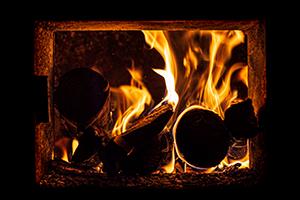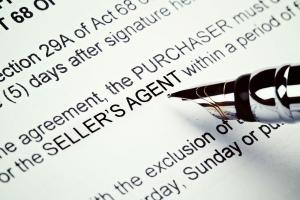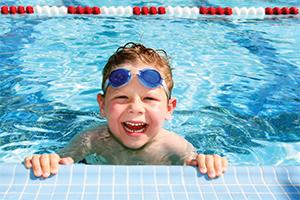Top 10 loss prevention activities for health clubs
The Hanover Insurance Group shares your interest in preventing accidents or injuries and would like to share this list of loss prevention ideas. Implementing them would require a small amount of time and could prove extremely effective in reducing the potential for an undesired event. These items reflect real, large losses that other policyholders have suffered. Visit our Risk Solutions page to find documentation tools, inspection guides and other bulletins to further assist you with these activities.
1. Certificates of insurance
All contractors who work at your facility should have workers’ compensation and general liability insurance. Providing current Certificates of insurance should be required of all contractors.
2. Applicant/member waivers
Include properly worded waivers in your member applications, youth sports camp applications and special event applications. Legal counsel should review the wording.
3. Sauna safety
Post an appropriate medical warning sign at the sauna’s entrance. Prohibit placement of towels, clothing or other combustibles on sauna heaters. Install a sauna timer to inform users of elapsed time. Check saunas regularly while club is open and then at closing.
4. Keep your club’s equipment fit
Check equipment on a schedule recommended by the manufacturer. Repair where needed. Train all club members in proper use of equipment. Document training in individual member files. Note if training is declined. Require regular sanitation of equipment contact surfaces.
5. Immediate investigation and response
Whenever a club member reports an incident involving equipment, club conditions or physical injury, take immediate action that includes investigation, documentation and corrective action.
6. CORI/SORI checks
Criminal Offender Record Information/Sex Offender Registry Information checks should be conducted at the time of hire for any staff member that could interact with persons younger than 18 years old. Child to staff ratio should be 5 to 1 maximum if you offer babysitting services.
7. Air supported structure safety
If you operate an air supported ‘bubble building’, have it inspected by an authorized manufacturer’s representative at least every two years. Immediately repair any damage. Prepare for snowstorms in advance and follow manufacturer procedures for snow removal. Put air handlers, heating systems and emergency generators on a maintenance schedule recommended by the manufacturer.
8. Inspect enclosed water piping before cold weather arrives
Look for fire sprinklers and water pipes above ceilings, in closets, or along exterior walls that may need better insulation, higher temperatures or special maintenance to prevent freezing.
9. Ice and snow removal log
Workers spend time and effort keeping people safe from falls by clearing snow and ice from sidewalks and parking areas. After the shoveling and salting is done, take a minute to document what they did and when they did it. This can greatly improve your defense position in the event of a slip and fall injury. View The Hanover's snow and ice control record to help maintain appropriate records of snow and ice removal and treatment.
10. Hot work programs
Anyone performing ‘hot work’ (e.g., a welder or plumber) should operate under a hot work permit system that includes a fire watch after the work is completed.
This material is provided for informational purposes only and does not provide any coverage or guarantee loss prevention. The examples in this material are provided as hypothetical and for illustration purposes only. The Hanover Insurance Company and its affiliates and subsidiaries (“The Hanover”) specifically disclaim any warranty or representation that acceptance of any recommendations contained herein will make any premises, or operation safe or in compliance with any law or regulation. By providing this information to you, The Hanover does not assume (and specifically disclaims) any duty, undertaking or responsibility to you. The decision to accept or implement any recommendation(s) or advice contained in this material must be made by you.
LC DEC 2018 09-53H
171-0880 (2/14)
Related resources
Top 10 loss prevention activities for health clubs
The Hanover Insurance Group shares your interest in preventing accidents or injuries and would like to share this list of loss prevention ideas. Implementing them would require a small amount of time and could prove extremely effective in reducing the potential for an undesired event. These items reflect real, large losses that other policyholders have suffered. Visit our Risk Solutions page to find documentation tools, inspection guides and other bulletins to further assist you with these activities.
1. Certificates of insurance
All contractors who work at your facility should have workers’ compensation and general liability insurance. Providing current Certificates of insurance should be required of all contractors.
2. Applicant/member waivers
Include properly worded waivers in your member applications, youth sports camp applications and special event applications. Legal counsel should review the wording.
3. Sauna safety
Post an appropriate medical warning sign at the sauna’s entrance. Prohibit placement of towels, clothing or other combustibles on sauna heaters. Install a sauna timer to inform users of elapsed time. Check saunas regularly while club is open and then at closing.
4. Keep your club’s equipment fit
Check equipment on a schedule recommended by the manufacturer. Repair where needed. Train all club members in proper use of equipment. Document training in individual member files. Note if training is declined. Require regular sanitation of equipment contact surfaces.
5. Immediate investigation and response
Whenever a club member reports an incident involving equipment, club conditions or physical injury, take immediate action that includes investigation, documentation and corrective action.
6. CORI/SORI checks
Criminal Offender Record Information/Sex Offender Registry Information checks should be conducted at the time of hire for any staff member that could interact with persons younger than 18 years old. Child to staff ratio should be 5 to 1 maximum if you offer babysitting services.
7. Air supported structure safety
If you operate an air supported ‘bubble building’, have it inspected by an authorized manufacturer’s representative at least every two years. Immediately repair any damage. Prepare for snowstorms in advance and follow manufacturer procedures for snow removal. Put air handlers, heating systems and emergency generators on a maintenance schedule recommended by the manufacturer.
8. Inspect enclosed water piping before cold weather arrives
Look for fire sprinklers and water pipes above ceilings, in closets, or along exterior walls that may need better insulation, higher temperatures or special maintenance to prevent freezing.
9. Ice and snow removal log
Workers spend time and effort keeping people safe from falls by clearing snow and ice from sidewalks and parking areas. After the shoveling and salting is done, take a minute to document what they did and when they did it. This can greatly improve your defense position in the event of a slip and fall injury. View The Hanover's snow and ice control record to help maintain appropriate records of snow and ice removal and treatment.
10. Hot work programs
Anyone performing ‘hot work’ (e.g., a welder or plumber) should operate under a hot work permit system that includes a fire watch after the work is completed.
This material is provided for informational purposes only and does not provide any coverage or guarantee loss prevention. The examples in this material are provided as hypothetical and for illustration purposes only. The Hanover Insurance Company and its affiliates and subsidiaries (“The Hanover”) specifically disclaim any warranty or representation that acceptance of any recommendations contained herein will make any premises, or operation safe or in compliance with any law or regulation. By providing this information to you, The Hanover does not assume (and specifically disclaims) any duty, undertaking or responsibility to you. The decision to accept or implement any recommendation(s) or advice contained in this material must be made by you.
LC DEC 2018 09-53H
171-0880 (2/14)
Related resources
Top 10 loss prevention activities for health clubs
The Hanover Insurance Group shares your interest in preventing accidents or injuries and would like to share this list of loss prevention ideas. Implementing them would require a small amount of time and could prove extremely effective in reducing the potential for an undesired event. These items reflect real, large losses that other policyholders have suffered. Visit our Risk Solutions page to find documentation tools, inspection guides and other bulletins to further assist you with these activities.
1. Certificates of insurance
All contractors who work at your facility should have workers’ compensation and general liability insurance. Providing current Certificates of insurance should be required of all contractors.
2. Applicant/member waivers
Include properly worded waivers in your member applications, youth sports camp applications and special event applications. Legal counsel should review the wording.
3. Sauna safety
Post an appropriate medical warning sign at the sauna’s entrance. Prohibit placement of towels, clothing or other combustibles on sauna heaters. Install a sauna timer to inform users of elapsed time. Check saunas regularly while club is open and then at closing.
4. Keep your club’s equipment fit
Check equipment on a schedule recommended by the manufacturer. Repair where needed. Train all club members in proper use of equipment. Document training in individual member files. Note if training is declined. Require regular sanitation of equipment contact surfaces.
5. Immediate investigation and response
Whenever a club member reports an incident involving equipment, club conditions or physical injury, take immediate action that includes investigation, documentation and corrective action.
6. CORI/SORI checks
Criminal Offender Record Information/Sex Offender Registry Information checks should be conducted at the time of hire for any staff member that could interact with persons younger than 18 years old. Child to staff ratio should be 5 to 1 maximum if you offer babysitting services.
7. Air supported structure safety
If you operate an air supported ‘bubble building’, have it inspected by an authorized manufacturer’s representative at least every two years. Immediately repair any damage. Prepare for snowstorms in advance and follow manufacturer procedures for snow removal. Put air handlers, heating systems and emergency generators on a maintenance schedule recommended by the manufacturer.
8. Inspect enclosed water piping before cold weather arrives
Look for fire sprinklers and water pipes above ceilings, in closets, or along exterior walls that may need better insulation, higher temperatures or special maintenance to prevent freezing.
9. Ice and snow removal log
Workers spend time and effort keeping people safe from falls by clearing snow and ice from sidewalks and parking areas. After the shoveling and salting is done, take a minute to document what they did and when they did it. This can greatly improve your defense position in the event of a slip and fall injury. View The Hanover's snow and ice control record to help maintain appropriate records of snow and ice removal and treatment.
10. Hot work programs
Anyone performing ‘hot work’ (e.g., a welder or plumber) should operate under a hot work permit system that includes a fire watch after the work is completed.
This material is provided for informational purposes only and does not provide any coverage or guarantee loss prevention. The examples in this material are provided as hypothetical and for illustration purposes only. The Hanover Insurance Company and its affiliates and subsidiaries (“The Hanover”) specifically disclaim any warranty or representation that acceptance of any recommendations contained herein will make any premises, or operation safe or in compliance with any law or regulation. By providing this information to you, The Hanover does not assume (and specifically disclaims) any duty, undertaking or responsibility to you. The decision to accept or implement any recommendation(s) or advice contained in this material must be made by you.
LC DEC 2018 09-53H
171-0880 (2/14)
Related resources
Top 10 loss prevention activities for health clubs
The Hanover Insurance Group shares your interest in preventing accidents or injuries and would like to share this list of loss prevention ideas. Implementing them would require a small amount of time and could prove extremely effective in reducing the potential for an undesired event. These items reflect real, large losses that other policyholders have suffered. Visit our Risk Solutions page to find documentation tools, inspection guides and other bulletins to further assist you with these activities.
1. Certificates of insurance
All contractors who work at your facility should have workers’ compensation and general liability insurance. Providing current Certificates of insurance should be required of all contractors.
2. Applicant/member waivers
Include properly worded waivers in your member applications, youth sports camp applications and special event applications. Legal counsel should review the wording.
3. Sauna safety
Post an appropriate medical warning sign at the sauna’s entrance. Prohibit placement of towels, clothing or other combustibles on sauna heaters. Install a sauna timer to inform users of elapsed time. Check saunas regularly while club is open and then at closing.
4. Keep your club’s equipment fit
Check equipment on a schedule recommended by the manufacturer. Repair where needed. Train all club members in proper use of equipment. Document training in individual member files. Note if training is declined. Require regular sanitation of equipment contact surfaces.
5. Immediate investigation and response
Whenever a club member reports an incident involving equipment, club conditions or physical injury, take immediate action that includes investigation, documentation and corrective action.
6. CORI/SORI checks
Criminal Offender Record Information/Sex Offender Registry Information checks should be conducted at the time of hire for any staff member that could interact with persons younger than 18 years old. Child to staff ratio should be 5 to 1 maximum if you offer babysitting services.
7. Air supported structure safety
If you operate an air supported ‘bubble building’, have it inspected by an authorized manufacturer’s representative at least every two years. Immediately repair any damage. Prepare for snowstorms in advance and follow manufacturer procedures for snow removal. Put air handlers, heating systems and emergency generators on a maintenance schedule recommended by the manufacturer.
8. Inspect enclosed water piping before cold weather arrives
Look for fire sprinklers and water pipes above ceilings, in closets, or along exterior walls that may need better insulation, higher temperatures or special maintenance to prevent freezing.
9. Ice and snow removal log
Workers spend time and effort keeping people safe from falls by clearing snow and ice from sidewalks and parking areas. After the shoveling and salting is done, take a minute to document what they did and when they did it. This can greatly improve your defense position in the event of a slip and fall injury. View The Hanover's snow and ice control record to help maintain appropriate records of snow and ice removal and treatment.
10. Hot work programs
Anyone performing ‘hot work’ (e.g., a welder or plumber) should operate under a hot work permit system that includes a fire watch after the work is completed.
This material is provided for informational purposes only and does not provide any coverage or guarantee loss prevention. The examples in this material are provided as hypothetical and for illustration purposes only. The Hanover Insurance Company and its affiliates and subsidiaries (“The Hanover”) specifically disclaim any warranty or representation that acceptance of any recommendations contained herein will make any premises, or operation safe or in compliance with any law or regulation. By providing this information to you, The Hanover does not assume (and specifically disclaims) any duty, undertaking or responsibility to you. The decision to accept or implement any recommendation(s) or advice contained in this material must be made by you.
LC DEC 2018 09-53H
171-0880 (2/14)





